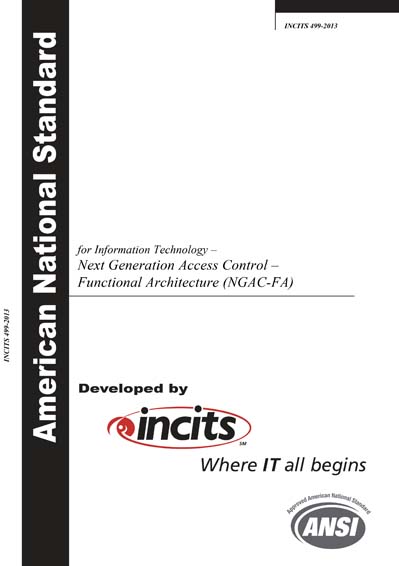Historical
INCITS 499-2013
Information Technology - Next Generation Access Control - Functional Architecture (NGAC-FA)
Next Generation Access Control (NGAC) is a fundamental reworking of traditional access control into a form that suits the needs of the modern distributed interconnected enterprise. Access control is both an administrative and an automated process of defining and restricting which users and their processes can perform which operations on which system resources. The information that provides the basis by which access requests are granted or denied is known as a policy, and a wide variety of types of policies have been created to address different situations. Well-known examples of mechanisms by which specific policy types are enforced are access control lists (ACLs), capabilities, role-based access control (RBAC), and type enforcement, and well-known policies are discretion
InterNational Committee for Information Technology Standards [incits]

